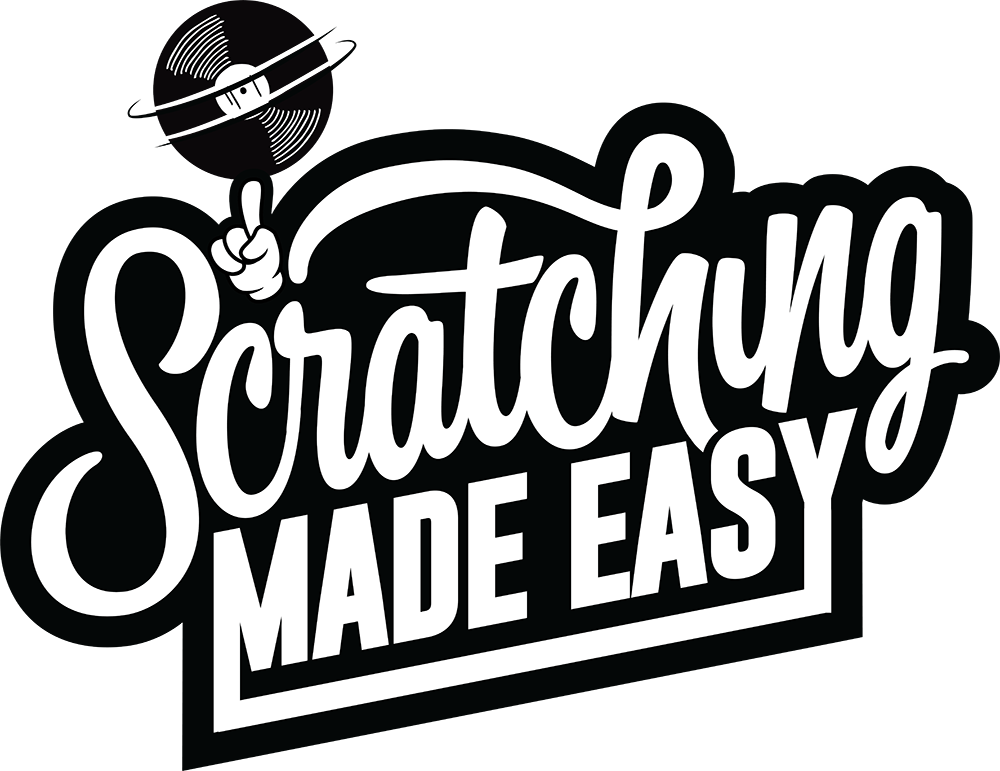MEET THE FOUNDERS
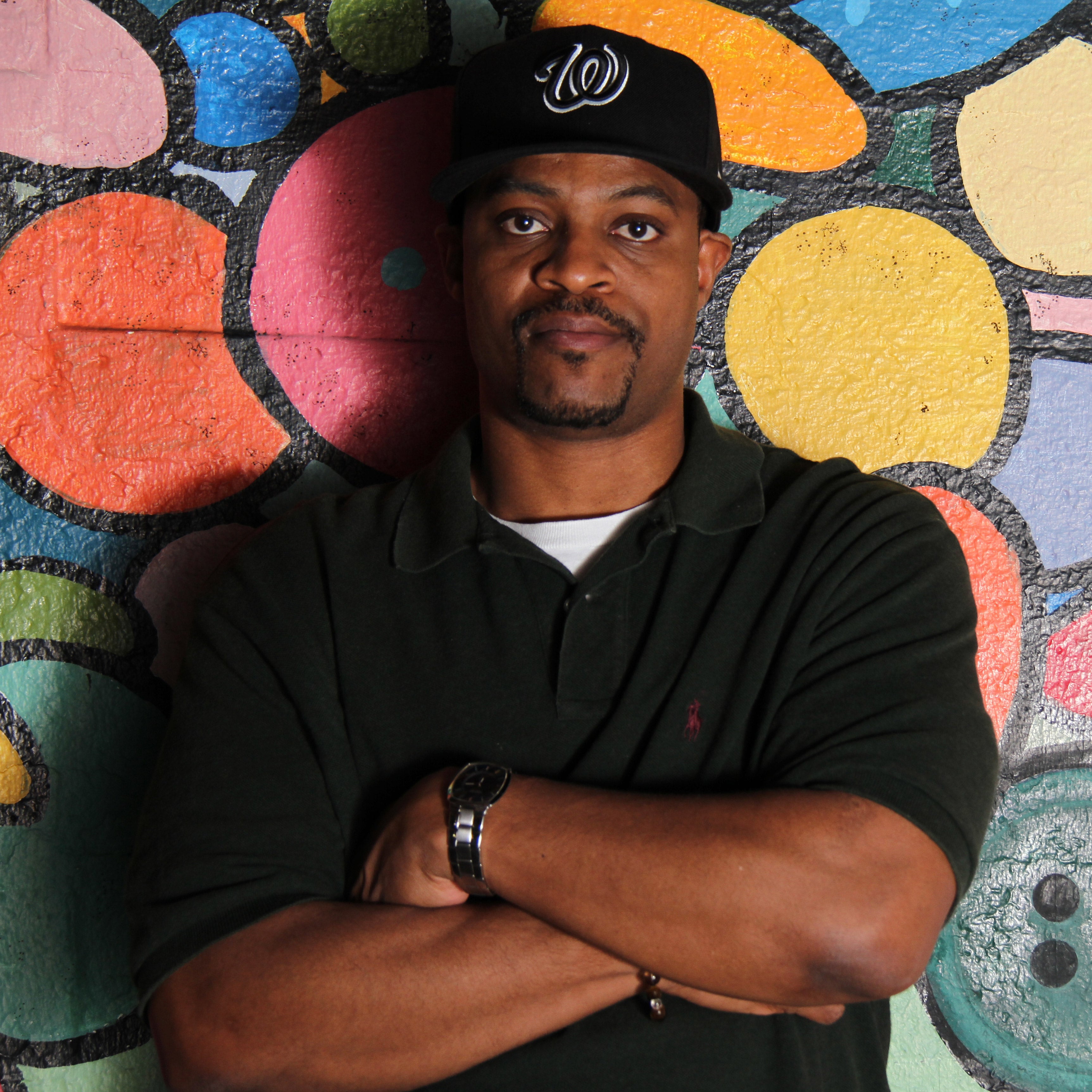
Dwayne Bullock
FOUNDER
DjRoninTokyo
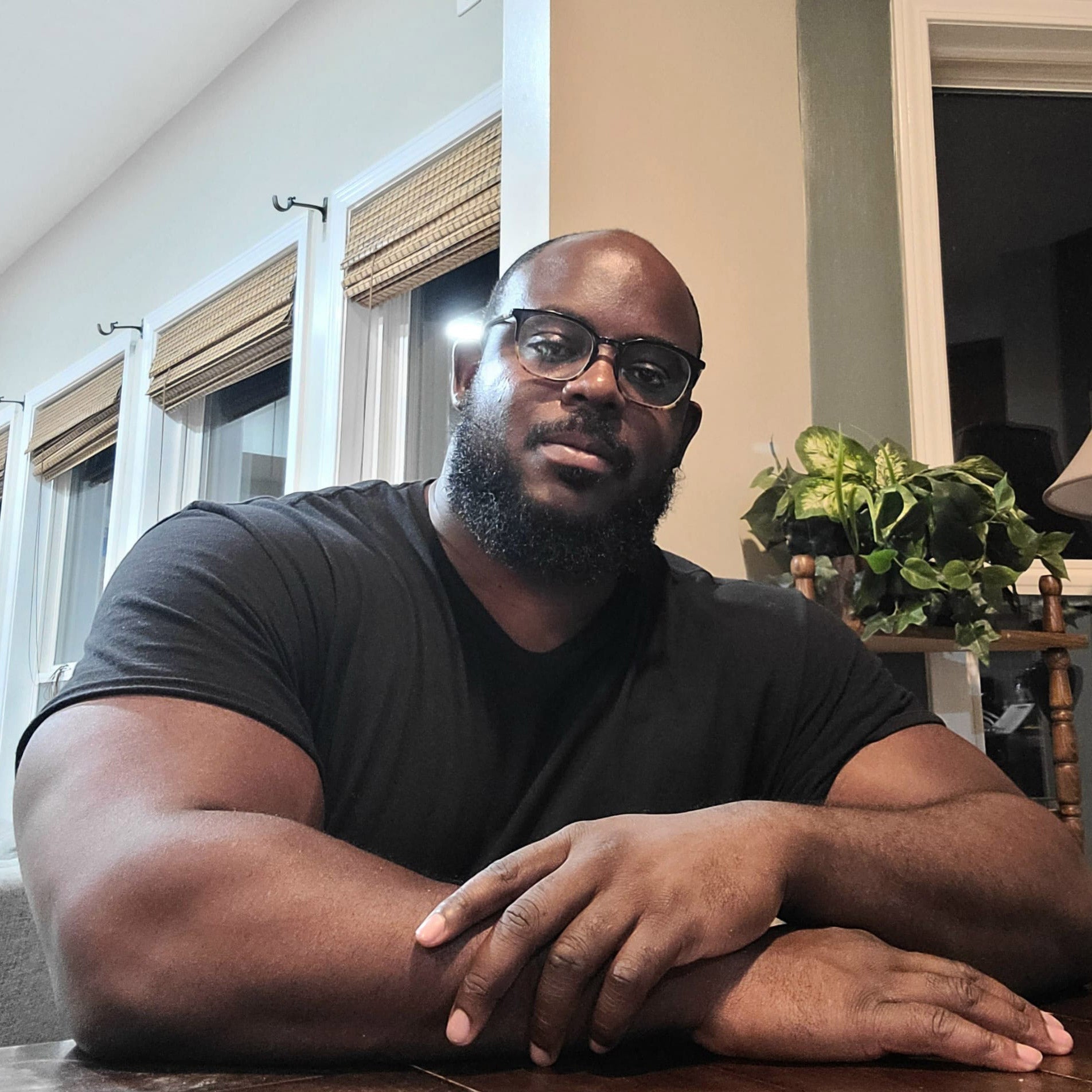
Jason Bullock
FOUNDER
How We Got Here
Scratching Made Easy Turntable Method Book 1: A Guide to Scratching is a beginning method book for DJs and music educators. It’s for you—the Scratch DJ. The playing of many Scratch DJs often seems inconsistent with their selected music, because of a lack of understanding of time signatures and music theory. This book is an educational resource for these basics. And, it will also help you develop dexterity, coordination, rhythmic phrasing, quality of tone, and dynamics, as well as timing.

Dwayne
"There was some knowledge missing from my DJing, but I couldn’t put my finger on it. I managed to build up a pretty good skill set through pride and persistence, but for some reason, I always felt uncomfortable. Over the years in the underground scene, I came across a lot of good Scratch DJs. I wondered “How is this guy right here doing what is in my head, but I can’t do it myself? I should be able to do this.” I watched DVDs, then tutorial after tutorial, but never progressed the way I thought I should. The first time I reached out to my younger brother, Jason, was because I was spending too much time putting together sets. I instinctively knew what songs went together, but I didn’t know why, so I asked Jason."

Jason
"During this time, we talked almost every night, but for some reason, we hadn’t specifically discussed our own musical worlds. Our conversations were mostly about life in Japan and life in the US. We stayed in touch, but we never talked about our musical goals. Dwayne was on a mission to be a better DJ; he was searching for answers to his problems by watching tutorials and scratch DVDs. I was trying to be a better producer. But we really weren’t too aware of what each other was doing. I’d been a percussionist since the fourth grade, which led to my making beats as I got older. Taking classes in college, I’d always been interested in music theory. While Dwayne was making a name for himself in Tokyo, I, coincidentally, was watching tutorials on elementary jazz theory. Dwayne asked me why two songs sounded good together, and this led to some excellent conversations (over a period of five years) about music theory. Dwayne was making progress, so I overlooked a lot of issues, because he was just making common mistakes that the average DJ makes."
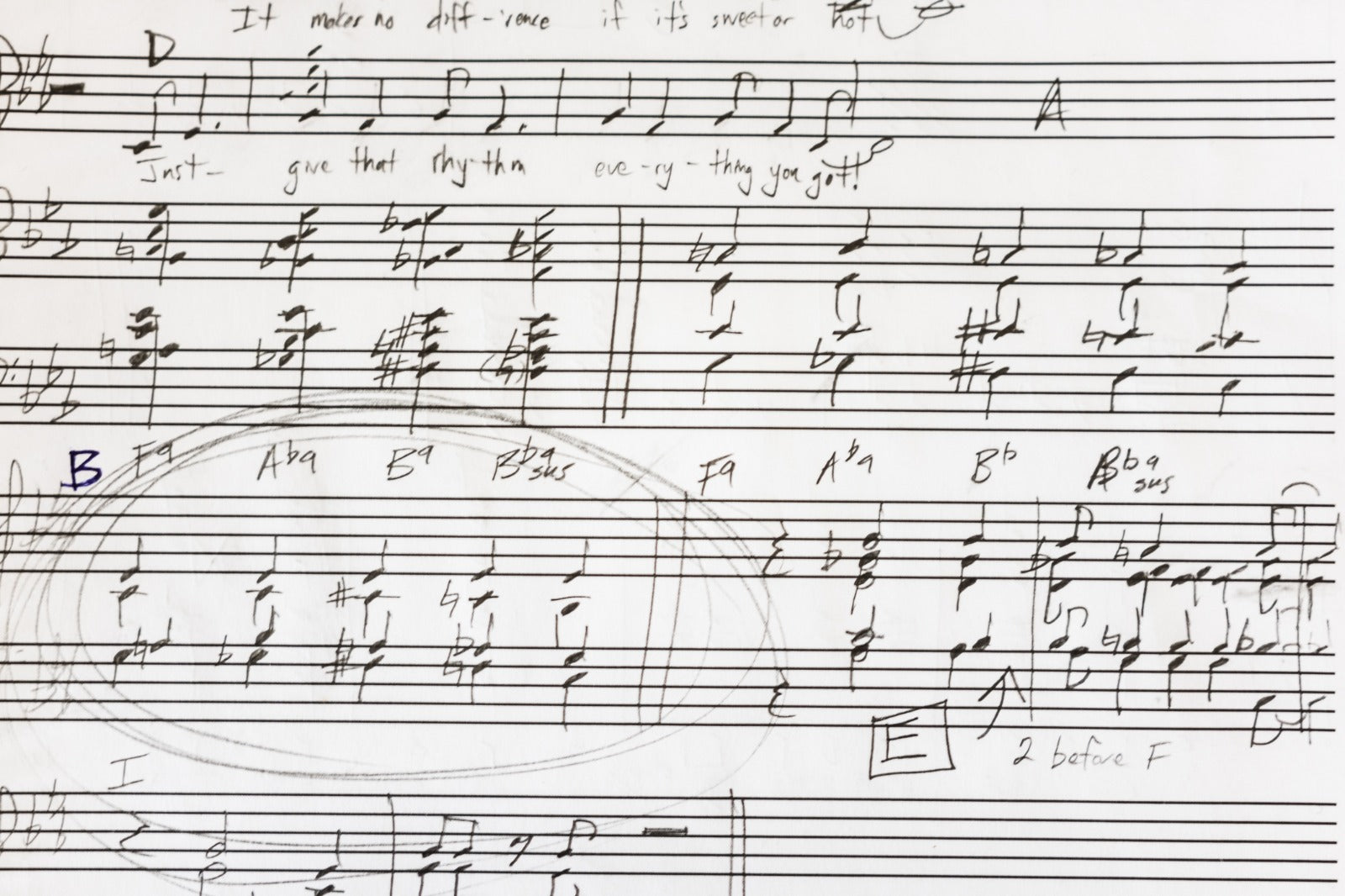
Dwayne
"I was having problems scratching a rhythm, so I called Jason for advice. In a heated, pivotal conversation, he told me I was struggling with timing, because I didn’t understand rhythm. I was insulted, because I knew music, and I thought that I “had” rhythm. Jason told me to write down a rhythm, and then scratch it. I said I can only scratch what I feel. On top of that, I didn’t understand the terminology he was using. This was the first time that I wrote down and played rhythms. I managed to write down what he asked, and tried to play it, but I was struggling, because I didn’t understand the concept. He then pointed out that we weren’t speaking the same “language.”"
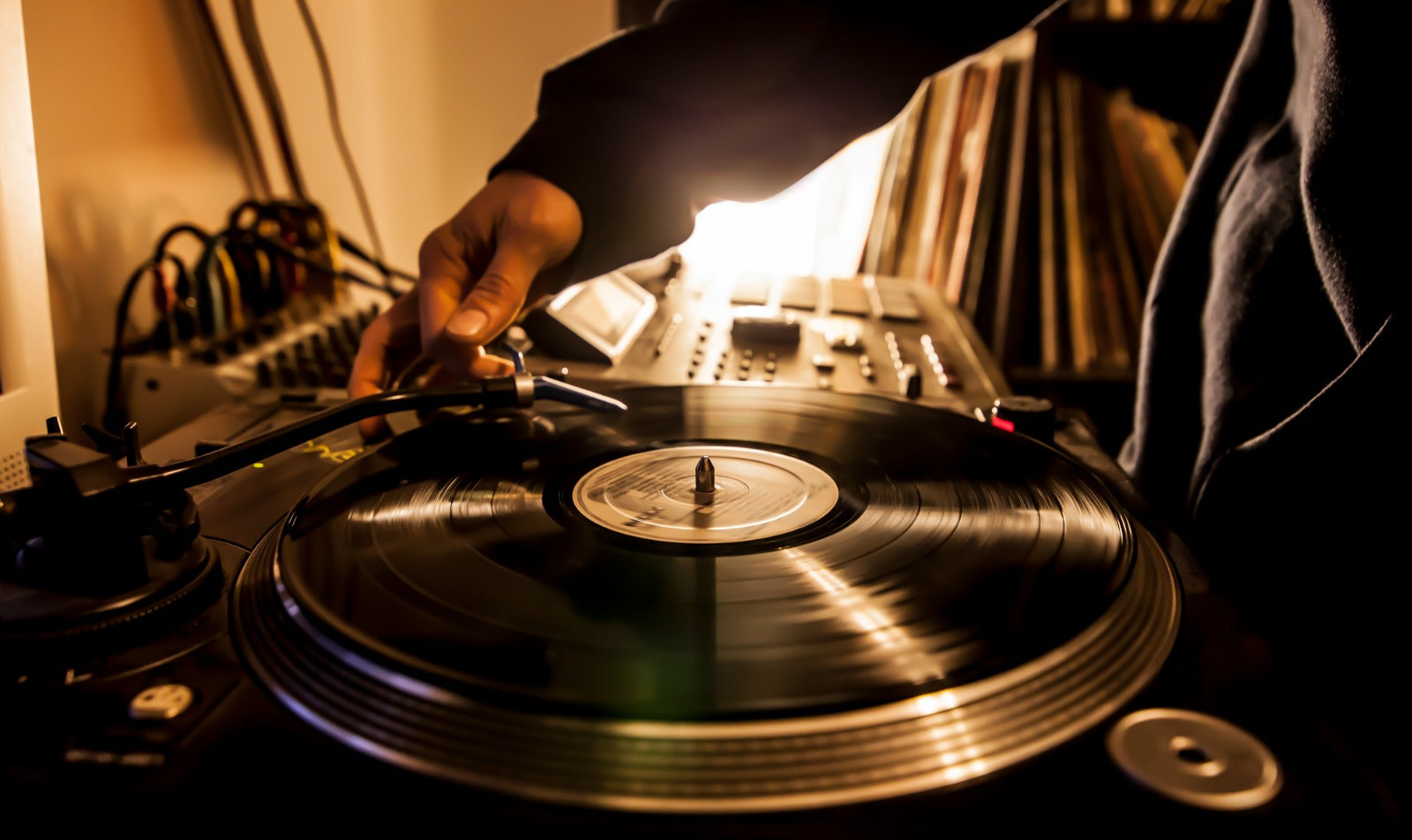
Jason
"I gave Dwayne some basic rhythms to prove a point, knowing he was going to make mistakes. I wanted him to see that he didn’t understand the fundamentals. After making several failed attempts, he asked what he could do to fix this problem, so I sent him some elementary exercises. He asked “How good could I be if I did this?” I told him that with practice, he could be as good as he wanted to be. I explained that theory is the equalizer. Some people are naturally talented, and scratching comes easy for them. But with theory, you can write out with music notation the complex rhythms that the best DJs are doing, develop a learning process that allows you to do the same, and then eventually put your own twist on it. With practice and dedication, I told him, theoretically he could be one of the best in the world!"

Dwayne
"After 10 minutes of attempting the sheet music that Jason sent me, I realized that my timing was terrible, and that I had a hard time controlling the record and staying on beat. I also knew exactly what Jason had given me. It was the answer to my dreams—the tools for building a foundation. It took out all of the guesswork, and the mystery was gone. I could see the learning progression on the page, and I could feel myself getting better with each line. After practicing, I called Jason and said “We have to write a book.” A lot of pieces had to fall into place. Without realizing it, we were working on different things that eventually came to be this collaboration. Opportunities to move forward, through obstacles such as time zone differences—Baltimore and Tokyo—miraculously fell into place. My brother and I were on different paths, that eventually came together."
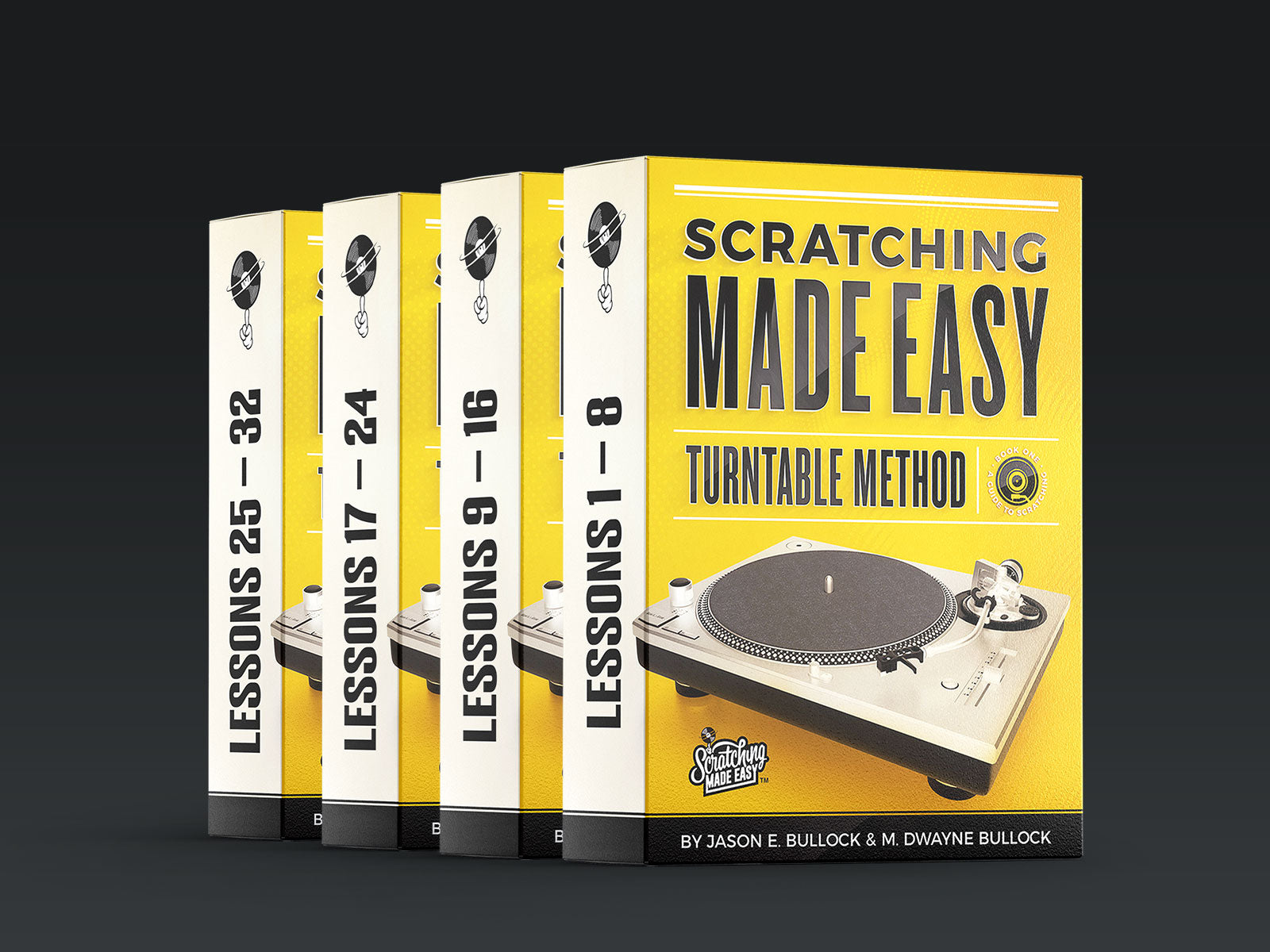
The tool for building a solid foundation.
Dwayne
"There was some knowledge missing from my DJing, but I couldn’t put my finger on it. I managed to build up a pretty good skill set through pride and persistence, but for some reason, I always felt uncomfortable. Over the years in the underground scene, I came across a lot of good Scratch DJs. I wondered “How is this guy right here doing what is in my head, but I can’t do it myself? I should be able to do this.” I watched DVDs, then tutorial after tutorial, but never progressed the way I thought I should. The first time I reached out to my younger brother, Jason, was because I was spending too much time putting together sets. I instinctively knew what songs went together, but I didn’t know why, so I asked Jason."
Jason
"During this time, we talked almost every night, but for some reason, we hadn’t specifically discussed our own musical worlds. Our conversations were mostly about life in Japan and life in the US. We stayed in touch, but we never talked about our musical goals. Dwayne was on a mission to be a better DJ; he was searching for answers to his problems by watching tutorials and scratch DVDs. I was trying to be a better producer. But we really weren’t too aware of what each other was doing. I’d been a percussionist since the fourth grade, which led to my making beats as I got older. Taking classes in college, I’d always been interested in music theory. While Dwayne was making a name for himself in Tokyo, I, coincidentally, was watching tutorials on elementary jazz theory. Dwayne asked me why two songs sounded good together, and this led to some excellent conversations (over a period of five years) about music theory. Dwayne was making progress, so I overlooked a lot of issues, because he was just making common mistakes that the average DJ makes."
Dwayne
"I was having problems scratching a rhythm, so I called Jason for advice. In a heated, pivotal conversation, he told me I was struggling with timing, because I didn’t understand rhythm. I was insulted, because I knew music, and I thought that I “had” rhythm. Jason told me to write down a rhythm, and then scratch it. I said I can only scratch what I feel. On top of that, I didn’t understand the terminology he was using. This was the first time that I wrote down and played rhythms. I managed to write down what he asked, and tried to play it, but I was struggling, because I didn’t understand the concept. He then pointed out that we weren’t speaking the same “language.”"
Jason
"I gave Dwayne some basic rhythms to prove a point, knowing he was going to make mistakes. I wanted him to see that he didn’t understand the fundamentals. After making several failed attempts, he asked what he could do to fix this problem, so I sent him some elementary exercises. He asked “How good could I be if I did this?” I told him that with practice, he could be as good as he wanted to be. I explained that theory is the equalizer. Some people are naturally talented, and scratching comes easy for them. But with theory, you can write out with music notation the complex rhythms that the best DJs are doing, develop a learning process that allows you to do the same, and then eventually put your own twist on it. With practice and dedication, I told him, theoretically he could be one of the best in the world!"
Dwayne
"After 10 minutes of attempting the sheet music that Jason sent me, I realized that my timing was terrible, and that I had a hard time controlling the record and staying on beat. I also knew exactly what Jason had given me. It was the answer to my dreams—the tools for building a foundation. It took out all of the guesswork, and the mystery was gone. I could see the learning progression on the page, and I could feel myself getting better with each line. After practicing, I called Jason and said “We have to write a book.” A lot of pieces had to fall into place. Without realizing it, we were working on different things that eventually came to be this collaboration. Opportunities to move forward, through obstacles such as time zone differences—Baltimore and Tokyo—miraculously fell into place. My brother and I were on different paths, that eventually came together."
The tool for building a solid foundation.






